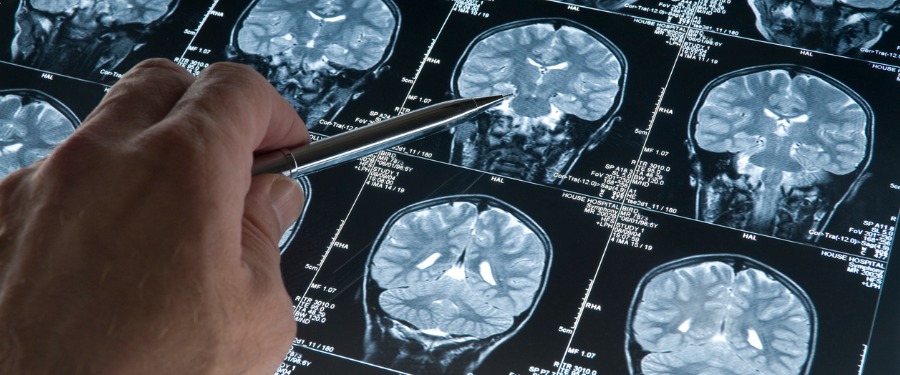The history of Alzheimer’s disease

Alzheimer’s disease is the most common type of dementia in the United States, impacting around 6.2 million people above the age of 65. Since it was first observed in the early 1900s, a lot of information has been uncovered through medical research.
While there are still many things about Alzheimer’s disease that remain unknown, fortunately, doctors and researchers now understand much more about what Alzheimer’s disease is, how it impacts individuals, and how it progresses — all of which we will dive into below.
What is Alzheimer’s disease?
Alzheimer’s disease is a progressive condition that impacts the brain, leading to memory loss, confusion, and cognitive decline. It is the most common type of dementia, mainly impacting older adults and affecting more women than men.
It is not fully understood what causes Alzheimer’s, but those that are impacted will experience a buildup of plaques and tangles within the brain’s nerve cells. While the root cause of these is thought to be related to changes from aging in addition to genetic and lifestyle factors, more information is needed to learn more about how these things are related to memory loss.
A brief history of Alzheimer’s disease
First noted in 1906, Alzheimer’s disease impacted a patient who was under the care of Dr. Alois Alzheimer. Though the condition was not yet understood, after the patient’s death, Dr. Alzheimer noted plaque deposits around the brain’s nerve cells.
The prevalence of this phenomenon only continued to increase, which led to the establishment of the National Institute on Aging in 1974, and the declaration of Alzheimer’s as the most common form of dementia in 1976.
In the 1980s, the Alzheimer’s Association was founded, two proteins (beta-amyloid and tau) were discovered as the main markers of Alzheimer’s disease, and the first Alzheimer’s drug trial was started. Through the 1990s and early aughts, four additional drugs were approved.
Throughout the past 20 years, Alzheimer’s awareness and research has continued to advance. Standards for obtaining and interpreting brain images were established, and an Alzheimer’s clinical trial database was created to provide researchers with incredible amounts of data to draw upon.
While there is still a lot to discover in regard to Alzheimer’s prevention and management, the progress of medical research is promising. In 2019, Alzheimer’s and dementia research funding reached an all-time high, making it possible for new and exciting breakthroughs to be discovered. And excitingly, in January of 2023, the Food and Drug Administration granted accelerated approval for an Alzheimer’s medication due to its promising nature in previous trials.
Common questions about Alzheimer’s disease
What are the 7 stages of Alzheimer’s disease?
The progression of Alzheimer’s disease is broken down into 7 distinct stages, starting before symptoms appear and ending with severe symptoms.
- Stage 1: Before symptoms appear, a patient is in the pre-clinical stage, where brain changes can be identified with no known impact on a person’s life
- Stage 2: As the disease progresses, a person begins to experience mild memory lapses and basic forgetfulness
- Stage 3: Noticeable changes will begin to occur, with cognitive issues going beyond basic information and personality changes starting to appear
- Stage 4: Going beyond memory loss, individuals in the fourth stage will experience difficulties with language, orientation, and calculations
- Stage 5: Individuals in Stage 5 will begin to experience a decrease in their independence, struggling to perform routine tasks during their daily lives.
- Stage 6: An individual will experience difficulty communicating and managing any aspects of their personal care
- Stage 7: As more brain cells become damaged, Alzheimer’s will progress to the final stage, characterized by a lack of physical control and significantly reduced mobility
Are there Alzheimer’s disease treatments available?
Though there is a plethora of promising research regarding Alzheimer’s, a cure is not yet available — but there are treatment options that can be helpful for maintaining an individual’s quality of life. Alzheimer’s disease management can involve working with a doctor to determine the best course of action, including medication to reduce symptom progression, planning for independence management, and the treatment of other health conditions that may relate to the progression of the disease.
What are some common Alzheimer’s symptoms?
Common symptoms of Alzheimer’s disease include:
- Memory loss, especially surrounding recent events
- Confusion about times and locations
- Struggling to complete familiar and routine tasks
- Changes in mood and personality
Is Alzheimer’s hereditary?
Though research has shown that there are genetic markers that may increase a person’s risk for Alzheimer’s, there is still more research needed to understand exactly how these impact a person’s risk factors. Many people who carry the gene are never diagnosed, while others who are not carriers do develop Alzheimer’s.
Though there has been significant progress made toward discovering the cause and cure for Alzheimer’s, research is still underway — and that research is only made possible when individuals participate. To learn more about current clinical trials surrounding Alzheimer’s prevention and treatment, use the button below.
Topics: For Patients